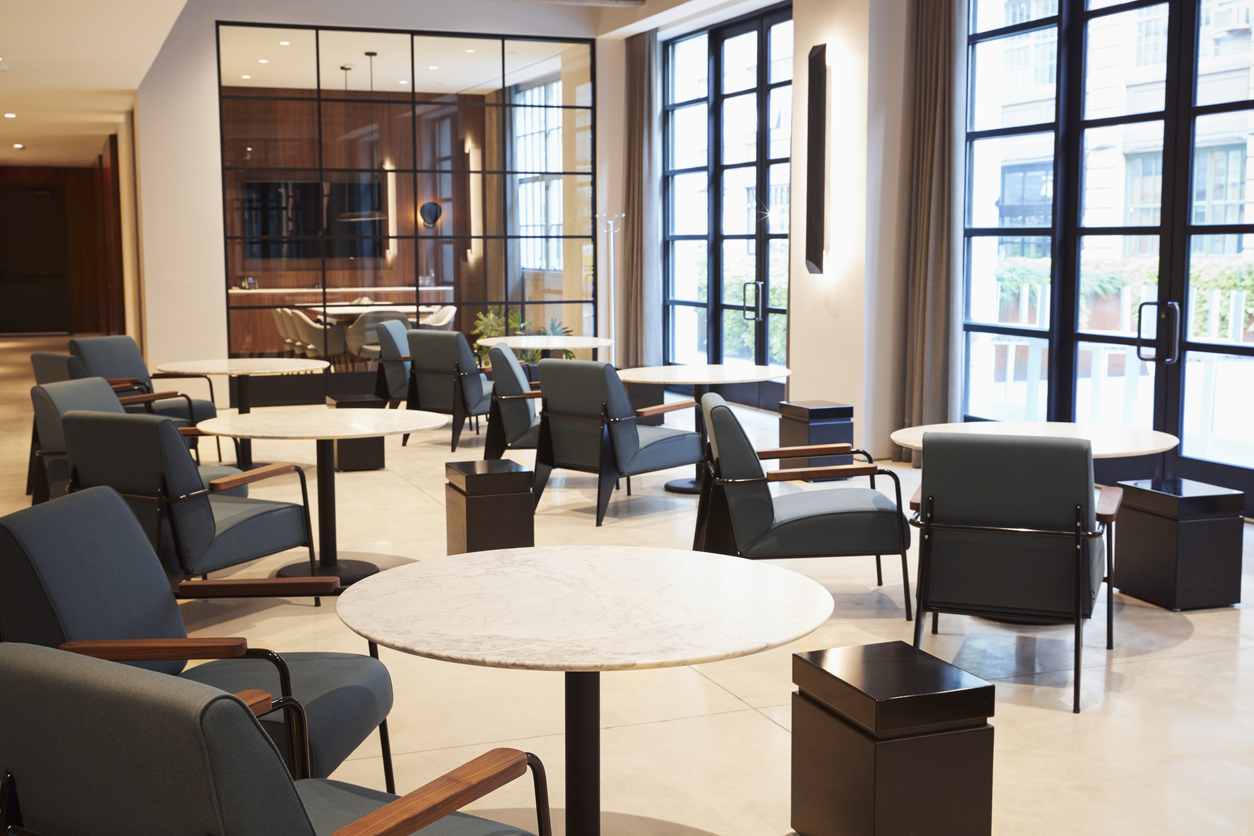Gary Hemming, Commercial Lending Director at ABC Finance, shares some food for thought on whether you should rent or buy your business premises.
There are a lot of factors to consider when deciding on whether to rent or buy your business premises. Both options have their own set of benefits and disadvantages, and it can be difficult to decide which is the best option for you. In this article, we will explore the pros and cons of renting vs buying commercial property so that you can make an informed decision about what is best for your business.
Initial Points To Consider
To get started, there are a few key considerations you're going to need to think about when it comes to deciding whether you should rent or buy your commercial property.
How Much Capital You Have Available
One of the key things you need to think about is how much capital you currently have available and whether you would be able to afford a mortgage on a commercial property. If you don't have much capital available, then renting might be the best option for you as it requires less upfront investment.
The Length of Time You Need the Property For
Another key consideration is the length of time you need the property for. If you only need it for a short period of time, then renting might be a better option as it gives you more flexibility, and you're not tied into a long-term mortgage. On the other hand, if you need the property for the long term, then buying might be a better option as you will eventually own the property outright.
What's The Current Market Like?
You also need to think about what the current market is like. If commercial property prices are high, then it might make more sense to rent as you stand a greater chance of losing money if the market turns. However, if commercial property prices are low, then it might be a good time to buy as you can get a property at a discounted price.
These are just a few of the initial considerations you need to consider when deciding whether to rent or buy your commercial property. In the next section, we will explore the pros and cons of each option in more detail.
Renting Commercial Property
There are a few key benefits to renting commercial property for your business:
The first benefit is that it requires less upfront investment. When you rent a property, you only need to pay the deposit and the first month's rent, which is usually lower than the down payment on a mortgage.
Another benefit of renting is that it gives you more flexibility. If your business needs change or you need to move to a different location, you can usually do so without any penalties.
Finally, when you rent a property, you don't have to worry about maintenance and repairs as that is typically the responsibility of the landlord.
There are a few disadvantages of renting commercial property as well:
The first disadvantage is that you will never own the property outright. Even if you stay in the same property for many years, you will still need to renew your lease and pay rent every month.
Another disadvantage of renting is that you might have less control over the property. For example, the landlord might not allow you to make any major changes or renovations to the property.
Finally, commercial rental prices can increase over time, which might make it difficult to budget for your business expenses. There will always be fluctuations in the market, and even unpredictable events, such as the landlord selling the property to a new landlord or stopping the leasing contract altogether. Of course, they would have to give notice, but this doesn’t stop it from being an inconvenience.
Buying Commercial Property
There are a few key benefits to buying commercial property for your business:
The first benefit is that you will eventually own the property outright. Once you have paid off your commercial mortgage, you won't have any more monthly payments to make, and you will have full control over the property.
Another benefit of buying is that you can make any changes or renovations that you want. If you need to expand your business, you can do so without having to get permission from a landlord. With this increased flexibility, you can create a space that is suitable for your business, thus being able to fully optimise what you’re doing and how you do it.
Finally, commercial property values typically appreciate over time, which means that your investment will likely increase in value. It also opens up other potential sources of revenue. For example, even if you don’t need your commercial property all the time, buying it means you sublet it, thus covering the costs and maybe even making money on your investment.
However, there are a few disadvantages of buying commercial property as well:
The first disadvantage is that it requires a large upfront investment. In addition to the down payment, you will also need to pay for closing costs, legal fees, and other expenses.
Another disadvantage of buying is that you are locked into the property. If you need to move to a different location, you will either need to sell the property or continue to pay for it even if you're not using it.
Finally, if commercial property values decrease, you might owe more on your commercial mortgage than the property is worth.
These are just a few of the initial considerations you need to consider when deciding whether to rent or buy your commercial property. In the next section, we will explore the pros and cons of each option in more detail.
The Lowdown
When it comes to deciding whether to rent or buy your commercial property, there is no right or wrong answer. It depends on your specific situation and what is best for your business.
If you have the upfront investment, buying might be a good option as you will eventually own the property, and it will likely increase in value over time. However, if you don't have the upfront investment or you need more flexibility, renting might be a better option.
No matter what you decide, be sure to do your research and see what is best for you in your current future and aligns with your future business plans.











